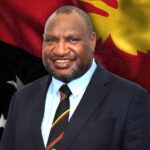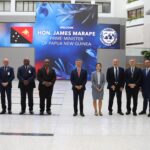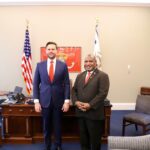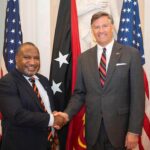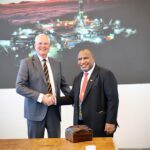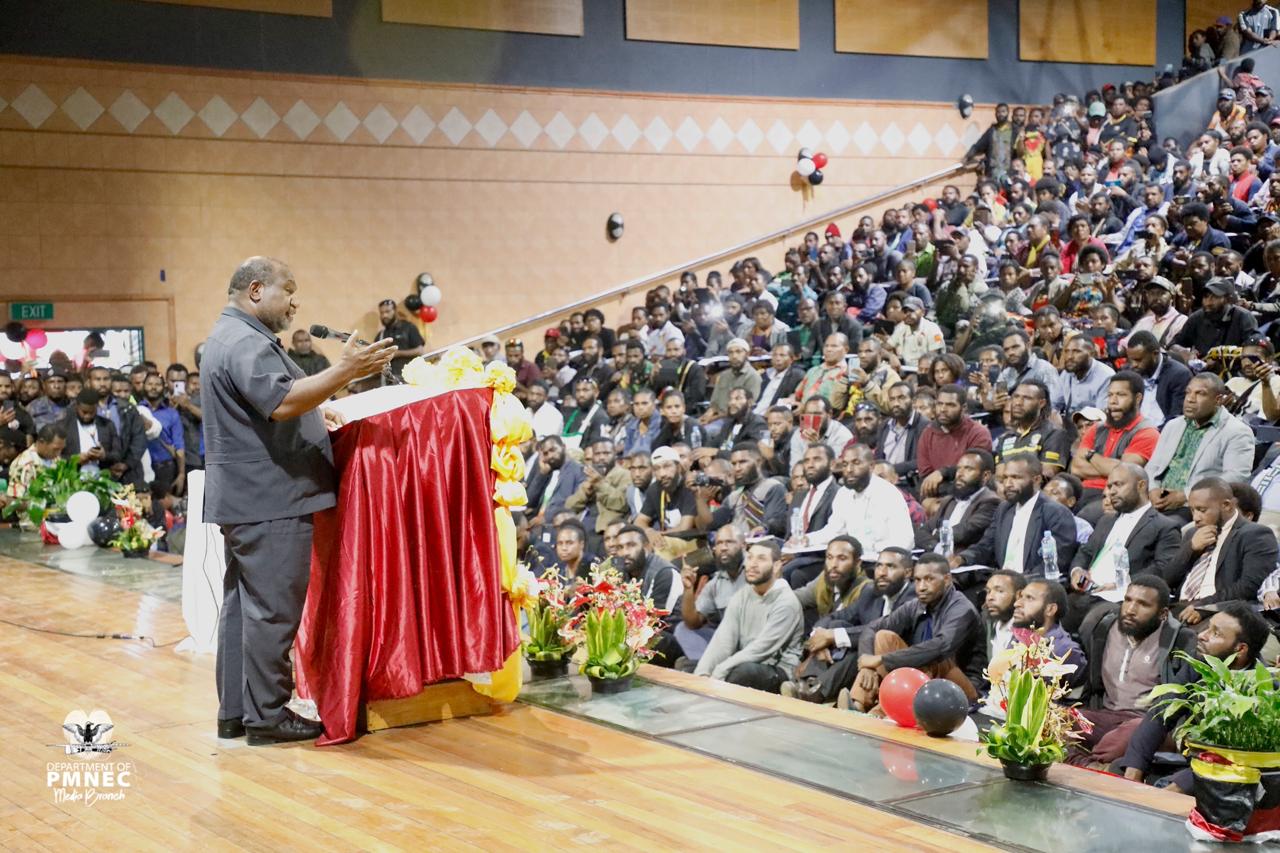Prime Minister Hon. James Marape today delivered a major national address to the student body, academic staff, and leadership of the University of Goroka (UOG), responding directly to a six-point student petition and outlining the Government’s strategic vision as Papua New Guinea approaches its 50th Independence Anniversary.
Speaking in front of a packed university hall and an online audience via livestream, Prime Minister Marape described the visit as a “conversation with the future leaders of the country” and urged students to engage critically with national issues, pledging transparency, inclusivity, and continued reform.
Responding to the Student Petition
Prime Minister Marape thanked the students for their considered petition and responded point-by-point, ensuring accountability on issues raised by young Papua New Guineans.
1. Anti-Terrorism Act 2024
The Prime Minister assured the audience that the Anti-Terrorism Act 2024, which sparked concern around its constitutionality and potential abuse of power, is currently under formal review.
“We have tasked our State Solicitor, Police Commissioner, and legal teams to scrutinise the law again. If there are areas that infringe on citizens’ rights or are open to abuse, we will amend them,” PM Marape said.
He explained the law’s intent was to provide police with tools to counter escalating lawlessness – including urban crime, tribal violence, and gender-based violence – without overreaching the rights of law-abiding citizens.
2. Section 145 Constitutional Amendment
On the controversial Section 145 amendment relating to votes of no confidence, PM Marape clarified that the core right to bring a no-confidence motion remains unchanged.
“We introduced what is now referred to as Subsection 5, which states that if a vote of no confidence is unsuccessful, the incumbent government is granted an additional 18-month grace period to continue its mandate. This is to ensure stability and continuity of governance, recognising that the mandate of the people has not been overturned. Importantly, the provision for a vote of no confidence remains intact; it has not
been removed. What this amendment does is apply the same 18-month grace period to both scenarios—either to a new government if the vote is successful, or to the sitting government if the vote is unsuccessful.”
He welcomed the Ombudsman Commission’s decision to refer the matter to the Supreme Court for a constitutional review and confirmed that the Government would fully comply with the Court’s ruling.
3. Paul Paraka Case
Responding to queries about the Paul Paraka legal case, the Prime Minister acknowledged that he had acted to stop irregular payments when he was Finance Minister and reaffirmed that the matter is currently before the courts.
“As a state witness, I cannot say much, but let the courts determine who acted lawfully and who did not. The law will catch up with anyone who has broken it – including me if I have,” he said.
4. Reinstatement of Task Force Sweep
Students called for the re-establishment of the Task Force Sweep, previously disbanded. PM Marape responded by stating that it has been replaced by a stronger institution – the Independent Commission Against Corruption (ICAC) – a constitutionally-backed body operating with local and international oversight.
“For the first time in our history, we passed ICAC laws and appointed an independent team to fight corruption at every level. The fight against corruption is real – and ICAC is the way forward,” he said.
5. Reserved Business List
The Prime Minister reaffirmed that protecting business spaces for Papua New Guineans is a central part of the Government’s economic reset under the “Take Back PNG” agenda.
“We are revisiting the Reserved Business List – if a business is meant for Papua New Guineans, then foreigners must not participate in it. This will be clearly defined by our 50th Anniversary,” he said.
He challenged young people to not only demand business opportunities but to work hard, stay committed, and demonstrate discipline in enterprise.
6. Quality Healthcare Access
On the final point of the petition, PM Marape detailed major healthcare reforms being rolled out, including localised access to specialist care.
“We are investing K4.2 billion into the health sector this year — the largest ever,” he said. “By September, PNG will perform its first kidney transplant and offer specialist heart and cancer treatments in Port Moresby and Lae. “While responsibilities for basic healthcare delivery lie with provincial health authorities (PHAs), the National Government continues to support them by allocating resources through the national budget to ensure they function effectively. These authorities are responsible for day-to-day healthcare services at the local level.
“The focus of the National Government, on the other hand, is on specialist care and the development of major hospitals. This is consistent with the national health strategy I announced in 2020 — that by 2025, specialist medical services will be fully established in Port Moresby.
“I am pleased to report that we are on track to deliver on that commitment.”
He shared a moving encounter with a cancer patient in Lae who thanked him for reopening Angau’s cancer centre, noting that real lives are already being saved through new Government initiatives.
Broader Policy Commitments
Throughout the speech, the Prime Minister linked these issues to broader national reforms:
• Law and Order: A national recruitment drive is underway to build a 10,000-strong police force by 2030, up from under 4,500 in 2019. PM Marape also launched the National Law and Justice Sector Plan 2025–2035, committing to magistrate expansion, correctional reform, and judicial modernisation.
• Corruption Oversight: He called for all citizens to report corruption, especially with ICAC, Police Fraud Squad, and the Auditor-General now empowered to act independently.
• Economic Growth: He highlighted PNG’s low GDP growth from 1975–2002, attributing it to frequent political instability, and reiterated his 2019 goal to push the economy to over K200 billion by focusing on infrastructure, agriculture, and trade.
• Higher Education: He reaffirmed support for the Higher Education Loan Programme (HELP) and indicated the Government is exploring policy reforms to forgive loans for graduates who teach in remote areas.
“You are the next generation of leaders – teachers who will raise the nation. We will explore ways to reward those who give back by serving in our schools,” he said.
Concluding Message
In an emotionally charged conclusion, Prime Minister Marape reflected on his own humble beginnings, studying in the Eastern Highlands, and called on students to remain hopeful and hardworking:
“Fifty years after Independence, we are still building. But I see hope in you. Build your homes, your schools, and your businesses. Let us build a country we can be proud of in 2045 when PNG turns 70.”
He paid tribute to all teachers across the nation and pledged continued investment in infrastructure, roads, and services to support future generations.
“Without teachers, we would not be where we are. God bless all our teachers. God bless the students of PNG.”


